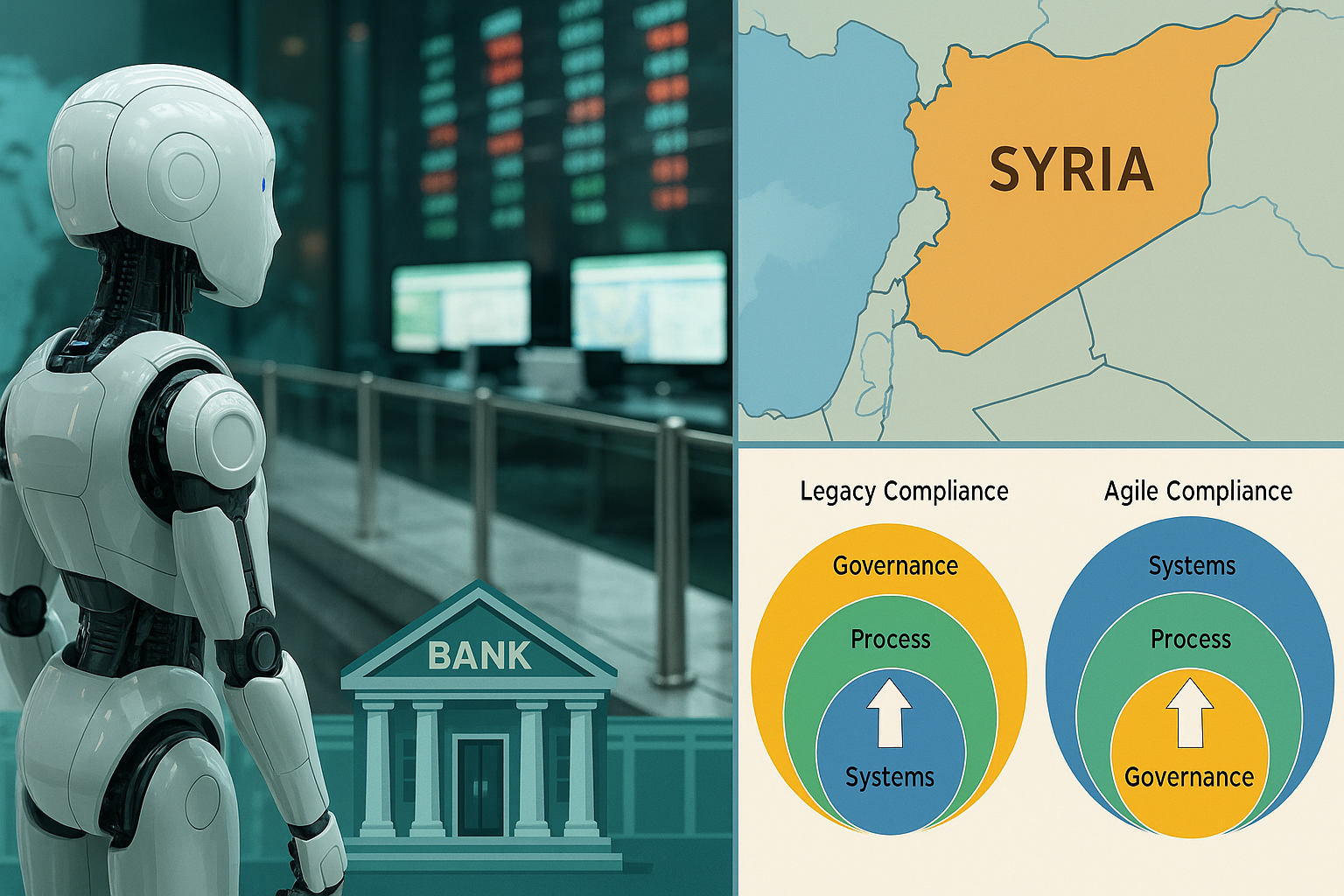Key Takeaways from Secretary Yellen's Testimony
 In the ever-changing world of global finance, Secretary of the Treasury Janet L. Yellen's testimony before the Committee on Financial Services on February 6, 2024, offers valuable insights into the current priorities and strategies of the U.S. financial regulatory framework. With a focus on maintaining and strengthening financial stability, Yellen's address highlights key areas of concern. We aim to analyze the content of Yellen's testimony, providing a breakdown of the highlighted initiatives, committee members' inquiries, and the role of technology in the banking sector.
In the ever-changing world of global finance, Secretary of the Treasury Janet L. Yellen's testimony before the Committee on Financial Services on February 6, 2024, offers valuable insights into the current priorities and strategies of the U.S. financial regulatory framework. With a focus on maintaining and strengthening financial stability, Yellen's address highlights key areas of concern. We aim to analyze the content of Yellen's testimony, providing a breakdown of the highlighted initiatives, committee members' inquiries, and the role of technology in the banking sector.
The Five Key Areas of Financial Focus
During her testimony, Secretary Yellen outlined five priority areas identified by the Financial Stability Oversight Council (FSOC):
1. Banking and Nonbank Financial Sector Risks: Yellen emphasized the importance of addressing vulnerabilities in both the banking sector and nonbank financial institutions, with a specific focus on enhancing capital measures and loss-absorbing capacities.
2. Climate-Related Financial Stability Risks: Recognizing the growing impact of climate change, Yellen called for improved risk assessments and disclosures to integrate climate-related considerations more effectively into financial decision-making.
3. Cybersecurity Risks: Given the increasing threat of digital attacks, enhancing cybersecurity through information sharing and collaboration across sectors was identified as a critical step to safeguard the financial infrastructure.
4. Artificial Intelligence in Financial Services: Yellen acknowledged the dual nature of AI, emphasizing the need to develop expertise and monitoring systems to leverage its benefits while mitigating potential risks.
5. Digital Assets: The expanding digital asset market requires clear regulatory frameworks and legislative action to address associated risks adequately and ensure market stability.
Committee Members' Inquiries
Following Yellen's testimony, committee members posed specific questions regarding the areas outlined above. Their inquiries focused on practical aspects of regulating stablecoins, overseeing nonbank financial institutions, and implementing climate-related financial disclosures. The Basel III regulatory framework also drew attention, with concerns raised about its potential impact on the resilience and lending capabilities of the banking sector.
The Role of Technology in Banking
The significance of technology emerged as a recurring theme in both Yellen's testimony and the committee's questions. As financial services become increasingly intertwined with digital platforms, technology plays a crucial role in enhancing the safety, efficiency, and innovation of the banking system. Whether addressing cybersecurity risks, leveraging artificial intelligence, or regulating digital assets, technology remains central to the efforts aimed at ensuring a stable and secure financial environment.
Conclusion
Secretary Yellen's testimony before the Committee on Financial Services sheds light on the comprehensive approach being taken to tackle current and emerging challenges in the financial system. From regulating nonbank financial institutions to integrating climate-related risks and overseeing digital assets, Yellen's testimony outlines key priorities in maintaining financial stability. The subsequent discussion among committee members further underscores the importance of these issues, particularly the potential impact of regulatory frameworks like Basel III. As the financial sector continues to evolve, the role of technology in ensuring the resilience and efficiency of banking systems remains a critical focus, emphasizing the need for ongoing innovation and regulatory adaptation.
Posts by Tag
- big data (41)
- advanced analytics (38)
- business perspective solutions (30)
- predictive analytics (25)
- business insights (24)
- data analytics infrastructure (17)
- analytics (16)
- banking (15)
- fintech (15)
- regulatory compliance (15)
- risk management (15)
- regtech (13)
- machine learning (12)
- quantitative analytics (12)
- BI (11)
- big data visualization presentation (11)
- community banking (11)
- AML (10)
- social media (10)
- AML/BSA (9)
- Big Data Prescriptions (9)
- analytics as a service (9)
- banking regulation (9)
- data scientist (9)
- social media marketing (9)
- Comminity Banks (8)
- financial risk (8)
- innovation (8)
- marketing (8)
- regulation (8)
- Digital ID-Proofing (7)
- data analytics (7)
- money laundering (7)
- AI (6)
- AI led digital banking (6)
- AML/BSA/CTF (6)
- Big Data practicioner (6)
- CIO (6)
- Performance Management (6)
- agile compliance (6)
- banking performance (6)
- digital banking (6)
- visualization (6)
- AML/BSA/CFT (5)
- KYC (5)
- data-as-a-service (5)
- email marketing (5)
- industrial big data (5)
- risk manangement (5)
- self-sovereign identity (5)
- verifiable credential (5)
- Hadoop (4)
- KPI (4)
- MoSoLoCo (4)
- NoSQL (4)
- buying cycle (4)
- identity (4)
- instrumentation (4)
- manatoko (4)
- mathematical models (4)
- sales (4)
- 2015 (3)
- bitcoin (3)
- blockchain (3)
- core banking (3)
- customer analyitcs (3)
- direct marketing (3)
- model validation (3)
- risk managemen (3)
- wearable computing (3)
- zero-knowledge proof (3)
- zkp (3)
- Agile (2)
- Cloud Banking (2)
- FFIEC (2)
- Internet of Things (2)
- IoT (2)
- PPP (2)
- PreReview (2)
- SaaS (2)
- Sales 2.0 (2)
- The Cloud is the Bank (2)
- Wal-Mart (2)
- data sprawl (2)
- digital marketing (2)
- disruptive technologies (2)
- email conversions (2)
- mobile marketing (2)
- new data types (2)
- privacy (2)
- risk (2)
- virtual currency (2)
- 2014 (1)
- 2025 (1)
- 3D printing (1)
- AMLA2020 (1)
- BOI (1)
- DAAS (1)
- Do you Hadoop (1)
- FinCEN_BOI (1)
- Goldman Sachs (1)
- HealthKit (1)
- Joseph Schumpeter (1)
- Manatoko_boir (1)
- NationalPriorites (1)
- PaaS (1)
- Sand Hill IoT 50 (1)
- Spark (1)
- agentic ai (1)
- apple healthcare (1)
- beneficial_owener (1)
- bsa (1)
- cancer immunotherapy (1)
- ccpa (1)
- currency (1)
- erc (1)
- fincen (1)
- fraud (1)
- health app (1)
- healthcare analytics (1)
- modelling (1)
- occam's razor (1)
- outlook (1)
- paycheck protection (1)
- personal computer (1)
- sandbox (1)
Recent Posts
Popular Posts
Here is a funny AI story.
Every community bank CEO now faces unprecedented...
On May 13, 2025, the U.S. government announced...



